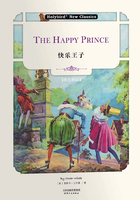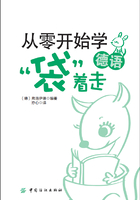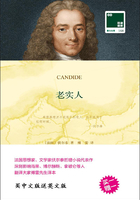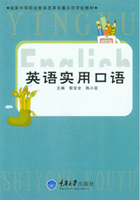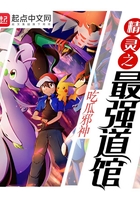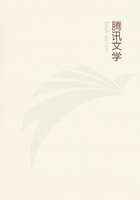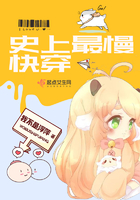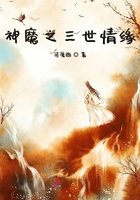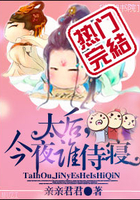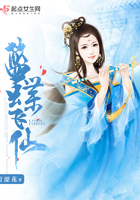What was left of the second sheet and the Brunswick black came in very nicely to make a banner bearing the legend
SHE IS NEARLY WELL THANK YOU
and this was displayed to the Green Dragon about a fortnight after the arrival of the wonderful hamper. The old gentleman saw it, and waved a cheerful response from the train. And when this had been done the children saw that now was the time when they must tell Mother what they had done when she was ill. And it did not seem nearly so easy as they had thought it would be. But it had to be done. And it was done. Mother was extremely angry. She was seldom angry, and now she was angrier than they had ever known her. This was horrible. But it was much worse when she suddenly began to cry. Crying is catching, I believe, like measles and whooping-cough. At any rate, everyone at once found itself taking part in a crying-party.
Mother stopped first. She dried her eyes and then she said: —
“I'm sorry I was so angry, darlings, because I know you didn't understand.”
“We didn't mean to be naughty, Mammy,” sobbed Bobbie, and Peter and Phyllis sniffed.
“Now, listen,” said Mother; “it's quite true that we're poor, but we have enough to live on. You mustn't go telling everyone about our affairs — it's not right. And you must never, never, never ask strangers to give you things. Now always remember that — won't you?”
They all hugged her and rubbed their damp cheeks against hers and promised that they would.
“And I'll write a letter to your old gentleman, and I shall tell him that I didn't approve — oh, of course I shall thank him, too, for his kindness. It's you I don't approve of, my darlings, not the old gentleman. He was as kind as ever he could be. And you can give the letter to the Station Master to give him — and we won't say any more about it.”
Afterwards, when the children were alone, Bobbie said: —
“Isn't Mother splendid? You catch any other grown-up saying they were sorry they had been angry.”
“Yes,” said Peter, “she is splendid; but it's rather awful when she's angry.”
“She's like Avenging and Bright in the song,” said Phyllis. “I should like to look at her if it wasn't so awful. She looks so beautiful when she's really downright furious.”
They took the letter down to the Station Master.
“I thought you said you hadn't got any friends except in London,” said he.
“We've made him since,” said Peter.
“But he doesn't live hereabouts?”
“No — we just know him on the railway.”
Then the Station Master retired to that sacred inner temple behind the little window where the tickets are sold, and the children went down to the Porters' room and talked to the Porter. They learned several interesting things from him — among others that his name was Perks, that he was married and had three children, that the lamps in front of engines are called head-lights and the ones at the back tail-lights.
“And that just shows,” whispered Phyllis, “that trains really are dragons in disguise, with proper heads and tails.”
It was on this day that the children first noticed that all engines are not alike.
“Alike?” said the Porter, whose name was Perks, “lor, love you, no, Miss. No more alike nor what you an' me are. That little 'un without a tender as went by just now all on her own, that was a tank, that was — she's off to do some shunting t' other side o' Maidbridge. That's as it might be you, Miss. Then there's goods engines, great, strong things with three wheels each side — joined with rods to strengthen 'em — as it might be me. Then there's main-line engines as it might be this 'ere young gentleman when he grows up and wins all the races at 'is school — so he will. The main-line engine she's built for speed as well as power. That's one to the 9.15 up.”
“The Green Dragon,” said Phyllis.
“We calls her the Snail, Miss, among ourselves,” said the Porter. “She's oftener be'ind'and nor any train on the line.”
“But the engine's green,” said Phyllis.
“Yes, Miss,” said Perks, “so's a snail some seasons o' the year.”
The children agreed as they went home to dinner that the Porter was most delightful company.
Next day was Roberta's birthday. In the afternoon she was politely but firmly requested to get out of the way and keep there till tea-time.
“You aren't to see what we're going to do till it's done; it's a glorious surprise,” said Phyllis.
And Roberta went out into the garden all alone. She tried to be grateful, but she felt she would much rather have helped in whatever it was than have to spend her birthday afternoon by herself, no matter how glorious the surprise might be.
Now that she was alone, she had time to think, and one of the things she thought of most was what mother had said in one of those feverish nights when her hands were so hot and her eyes so bright.
The words were: “Oh, what a doctor's bill there'll be for this!”
She walked round and round the garden among the rose-bushes that hadn't any roses yet, only buds, and the lilac bushes and syringas and American currants, and the more she thought of the doctor's bill, the less she liked the thought of it.
And presently she made up her mind. She went out through the side door of the garden and climbed up the steep field to where the road runs along by the canal. She walked along until she came to the bridge that crosses the canal and leads to the village, and here she waited. It was very pleasant in the sunshine to lean one's elbows on the warm stone of the bridge and look down at the blue water of the canal. Bobbie had never seen any other canal, except the Regent's Canal, and the water of that is not at all a pretty colour. And she had never seen any river at all except the Thames, which also would be all the better if its face was washed.
Perhaps the children would have loved the canal as much as the railway, but for two things. One was that they had found the railway first — on that first, wonderful morning when the house and the country and the moors and rocks and great hills were all new to them. They had not found the canal till some days later. The other reason was that everyone on the railway had been kind to them — the Station Master, the Porter, and the old gentleman who waved. And the people on the canal were anything but kind.
The people on the canal were, of course, the bargees, who steered the slow barges up and down, or walked beside the old horses that trampled up the mud of the towing-path, and strained at the long tow-ropes.
Peter had once asked one of the bargees the time, and had been told to “get out of that,” in a tone so fierce that he did not stop to say anything about his having just as much right on the towing-path as the man himself. Indeed, he did not even think of saying it till some time later.
Then another day when the children thought they would like to fish in the canal, a boy in a barge threw lumps of coal at them, and one of these hit Phyllis on the back of the neck. She was just stooping down to tie up her bootlace — and though the coal hardly hurt at all it made her not care very much about going on fishing.
On the bridge, however, Roberta felt quite safe, because she could look down on the canal, and if any boy showed signs of meaning to throw coal, she could duck behind the parapet.
Presently there was a sound of wheels, which was just what she expected.
The wheels were the wheels of the Doctor's dogcart, and in the cart, of course, was the Doctor.
He pulled up, and called out: —
“Hullo, head nurse! Want a lift?”
“I wanted to see you,” said Bobbie.
“Your mother's not worse, I hope?” said the Doctor.
“No — but — ”
“Well, skip in, then, and we'll go for a drive.”
Roberta climbed in and the brown horse was made to turn round — which it did not like at all, for it was looking forward to its tea — I mean its oats.
“This is jolly,” said Bobbie, as the dogcart flew along the road by the canal.
“We could throw a stone down any one of your three chimneys,” said the Doctor, as they passed the house.
“Yes,” said Bobbie, “but you'd have to be a jolly good shot.”
“How do you know I'm not?” said the Doctor. “Now, then, what's the trouble?”
Bobbie fidgeted with the hook of the driving apron.
“Come, out with it,” said the Doctor.
“It's rather hard, you see,” said Bobbie, “to out with it; because of what Mother said.”
“What did Mother say?”
“She said I wasn't to go telling everyone that we're poor. But you aren't everyone, are you?”
“Not at all,” said the Doctor, cheerfully. “Well?”
“Well, I know doctors are very extravagant — I mean expensive, and Mrs. Viney told me that her doctoring only cost her twopence a week because she belonged to a Club.”
“Yes?”
“You see she told me what a good doctor you were, and I asked her how she could afford you, because she's much poorer than we are. I've been in her house and I know. And then she told me about the Club, and I thought I'd ask you — and — oh, I don't want Mother to be worried! Can't we be in the Club, too, the same as Mrs. Viney?”
The Doctor was silent. He was rather poor himself, and he had been pleased at getting a new family to attend. So I think his feelings at that minute were rather mixed.
“You aren't cross with me, are you?” said Bobbie, in a very small voice.
The Doctor roused himself.
“Cross? How could I be? You're a very sensible little woman. Now look here, don't you worry. I'll make it all right with your Mother, even if I have to make a special brand-new Club all for her. Look here, this is where the Aqueduct begins.”
“What's an Aque — what's its name?” asked Bobbie.
“A water bridge,” said the Doctor. “Look.”
The road rose to a bridge over the canal. To the left was a steep rocky cliff with trees and shrubs growing in the cracks of the rock. And the canal here left off running along the top of the hill and started to run on a bridge of its own — a great bridge with tall arches that went right across the valley.
Bobbie drew a long breath.
“It is grand, isn't it?” she said. “It's like pictures in the History of Rome.”
“Right!” said the Doctor, “that's just exactly what it is like. The Romans were dead nuts on aqueducts. It's a splendid piece of engineering.”
“I thought engineering was making engines.”
“Ah, there are different sorts of engineering — making road and bridges and tunnels is one kind. And making fortifications is another. Well, we must be turning back. And, remember, you aren't to worry about doctor's bills or you'll be ill yourself, and then I'll send you in a bill as long as the aqueduct.”
When Bobbie had parted from the Doctor at the top of the field that ran down from the road to Three Chimneys, she could not feel that she had done wrong. She knew that Mother would perhaps think differently. But Bobbie felt that for once she was the one who was right, and she scrambled down the rocky slope with a really happy feeling.
Phyllis and Peter met her at the back door. They were unnaturally clean and neat, and Phyllis had a red bow in her hair. There was only just time for Bobbie to make herself tidy and tie up her hair with a blue bow before a little bell rang.
“There!” said Phyllis, “that's to show the surprise is ready. Now you wait till the bell rings again and then you may come into the dining-room.”
So Bobbie waited.
“Tinkle, tinkle,” said the little bell, and Bobbie went into the dining-room, feeling rather shy. Directly she opened the door she found herself, as it seemed, in a new world of light and flowers and singing. Mother and Peter and Phyllis were standing in a row at the end of the table. The shutters were shut and there were twelve candles on the table, one for each of Roberta's years. The table was covered with a sort of pattern of flowers, and at Roberta's place was a thick wreath of forget-me-nots and several most interesting little packages. And Mother and Phyllis and Peter were singing — to the first part of the tune of St. Patrick's Day. Roberta knew that Mother had written the words on purpose for her birthday. It was a little way of Mother's on birthdays. It had begun on Bobbie's fourth birthday when Phyllis was a baby. Bobbie remembered learning the verses to say to Father “for a surprise.” She wondered if Mother had remembered, too. The four-year-old verse had been: —
Daddy dear, I'm only four
And I'd rather not be more.
Four's the nicest age to be,
Two and two and one and three.
What I love is two and two,
Mother, Peter, Phil, and you.
What you love is one and three,
Mother, Peter, Phil, and me.
Give your little girl a kiss
Because she learned and told you this.
The song the others were singing now went like this: —
Our darling Roberta,
No sorrow shall hurt her
If we can prevent it
Her whole life long.
Her birthday's our fete day,
We'll make it our great day,
And give her our presents
And sing her our song.
May pleasures attend her
And may the Fates send her
The happiest journey
Along her life's way.
With skies bright above her
And dear ones to love her!
Dear Bob! Many happy
Returns of the day!
When they had finished singing they cried, “Three cheers for our Bobbie!” and gave them very loudly. Bobbie felt exactly as though she were going to cry — you know that odd feeling in the bridge of your nose and the pricking in your eyelids? But before she had time to begin they were all kissing and hugging her.
“Now,” said Mother, “look at your presents.”
They were very nice presents. There was a green and red needle-book that Phyllis had made herself in secret moments. There was a darling little silver brooch of Mother's shaped like a buttercup, which Bobbie had known and loved for years, but which she had never, never thought would come to be her very own. There was also a pair of blue glass vases from Mrs. Viney. Roberta had seen and admired them in the village shop. And there were three birthday cards with pretty pictures and wishes.
Mother fitted the forget-me-not crown on Bobbie's brown head.
“And now look at the table,” she said.
There was a cake on the table covered with white sugar, with “dear Bobbie” on it in pink sweets, and there were buns and jam; but the nicest thing was that the big table was almost covered with flowers — wallflowers were laid all round the tea-tray — there was a ring of forget-me-nots round each plate. The cake had a wreath of white lilac round it, and in the middle was something that looked like a pattern all done with single blooms of lilac or wallflower or laburnum.
“What is it?” asked Roberta.
“It's a map — a map of the railway!” cried Peter. “Look — those lilac lines are the metals — and there's the station done in brown wallflowers. The laburnum is the train, and there are the signal-boxes, and the road up to here — and those fat red daisies are us three waving to the old gentleman — that's him, the pansy in the laburnum train.”
“And there's ‘three Chimneys' done in the purple primroses,” said Phyllis. “And that little tiny rose-bud is Mother looking out for us when we're late for tea. Peter invented it all, and we got all the flowers from the station. We thought you'd like it better.”
“That's my present,” said Peter, suddenly dumping down his adored steam-engine on the table in front of her. Its tender had been lined with fresh white paper, and was full of sweets.
“Oh, Peter!” cried Bobbie, quite overcome by this munificence, “not your own dear little engine that you're so fond of?”
“Oh, no,” said Peter, very promptly, “not the engine. Only the sweets.”
Bobbie couldn't help her face changing a little — not so much because she was disappointed at not getting the engine, as because she had thought it so very noble of Peter, and now she felt she had been silly to think it. Also she felt she must have seemed greedy to expect the engine as well as the sweets. So her face changed. Peter saw it. He hesitated a minute; then his face changed, too, and he said: “I mean not all the engine. I'll let you go halves if you like.”
“You're a brick,” cried Bobbie; “it's a splendid present.” She said no more aloud, but to herself she said: —
“That was awfully jolly decent of Peter because I know he didn't mean to. Well, the broken half shall be my half of the engine, and I'll get it mended and give it back to Peter for his birthday.” — “Yes, Mother dear, I should like to cut the cake,” she added, and tea began.
It was a delightful birthday. After tea Mother played games with them — any game they liked — and of course their first choice was blindman's-buff, in the course of which Bobbie's forget-me-not wreath twisted itself crookedly over one of her ears and stayed there. Then, when it was near bed-time and time to calm down, Mother had a lovely new story to read to them.
“You won't sit up late working, will you, Mother?” Bobbie asked as they said good night.
And Mother said no, she wouldn't — she would only just write to Father and then go to bed.
But when Bobbie crept down later to bring up her presents — for she felt she really could not be separated from them all night — Mother was not writing, but leaning her head on her arms and her arms on the table. I think it was rather good of Bobbie to slip quietly away, saying over and over, “She doesn't want me to know she's unhappy, and I won't know; I won't know.” But it made a sad end to the birthday.
* * * * * *
The very next morning Bobbie began to watch her opportunity to get Peter's engine mended secretly. And the opportunity came the very next afternoon.
Mother went by train to the nearest town to do shopping. When she went there, she always went to the Post-office. Perhaps to post her letters to Father, for she never gave them to the children or Mrs. Viney to post, and she never went to the village herself. Peter and Phyllis went with her. Bobbie wanted an excuse not to go, but try as she would she couldn't think of a good one. And just when she felt that all was lost, her frock caught on a big nail by the kitchen door and there was a great criss-cross tear all along the front of the skirt. I assure you this was really an accident. So the others pitied her and went without her, for there was no time for her to change, because they were rather late already and had to hurry to the station to catch the train.
When they had gone, Bobbie put on her everyday frock, and went down to the railway. She did not go into the station, but she went along the line to the end of the platform where the engine is when the down train is alongside the platform — the place where there are a water tank and a long, limp, leather hose, like an elephant's trunk. She hid behind a bush on the other side of the railway. She had the toy engine done up in brown paper, and she waited patiently with it under her arm.
Then when the next train came in and stopped, Bobbie went across the metals of the up-line and stood beside the engine. She had never been so close to an engine before. It looked much larger and harder than she had expected, and it made her feel very small indeed, and, somehow, very soft — as if she could very, very easily be hurt rather badly.
“I know what silk-worms feel like now,” said Bobbie to herself.
The engine-driver and fireman did not see her. They were leaning out on the other side, telling the Porter a tale about a dog and a leg of mutton.
“If you please,” said Roberta — but the engine was blowing off steam and no one heard her.
“If you please, Mr. Engineer,” she spoke a little louder, but the Engine happened to speak at the same moment, and of course Roberta's soft little voice hadn't a chance.
It seemed to her that the only way would be to climb on to the engine and pull at their coats. The step was high, but she got her knee on it, and clambered into the cab; she stumbled and fell on hands and knees on the base of the great heap of coals that led up to the square opening in the tender. The engine was not above the weaknesses of its fellows; it was making a great deal more noise than there was the slightest need for. And just as Roberta fell on the coals, the engine-driver, who had turned without seeing her, started the engine, and when Bobbie had picked herself up, the train was moving — not fast, but much too fast for her to get off.
All sorts of dreadful thoughts came to her all together in one horrible flash. There were such things as express trains that went on, she supposed, for hundreds of miles without stopping. Suppose this should be one of them? How would she get home again? She had no money to pay for the return journey.
“And I've no business here. I'm an engine-burglar — that's what I am,” she thought. “I shouldn't wonder if they could lock me up for this.” And the train was going faster and faster.
There was something in her throat that made it impossible for her to speak. She tried twice. The men had their backs to her. They were doing something to things that looked like taps.
Suddenly she put out her hand and caught hold of the nearest sleeve. The man turned with a start, and he and Roberta stood for a minute looking at each other in silence. Then the silence was broken by them both.
The man said, “Here's a bloomin' go!” and Roberta burst into tears.
The other man said he was blooming well blest — or something like it — but though naturally surprised they were not exactly unkind.
“You're a naughty little gell, that's what you are,” said the fireman, and the engine-driver said: —
“Daring little piece, I call her,” but they made her sit down on an iron seat in the cab and told her to stop crying and tell them what she meant by it.
She did stop, as soon as she could. One thing that helped her was the thought that Peter would give almost his ears to be in her place — on a real engine — really going. The children had often wondered whether any engine-driver could be found noble enough to take them for a ride on an engine — and now there she was. She dried her eyes and sniffed earnestly.
“Now, then,” said the fireman, “out with it. What do you mean by it, eh?”
“Oh, please,” sniffed Bobbie.
“Try again,” said the engine-driver, encouragingly.
Bobbie tried again.
“Please, Mr. Engineer,” she said, “I did call out to you from the line, but you didn't hear me — and I just climbed up to touch you on the arm — quite gently I meant to do it — and then I fell into the coals — and I am so sorry if I frightened you. Oh, don't be cross — oh, please don't!” She sniffed again.
“We ain't so much cross,” said the fireman, “as interested like. It ain't every day a little gell tumbles into our coal bunker outer the sky, is it, Bill? What did you do it for — eh?”
“That's the point,” agreed the engine-driver; “what did you do it for?”
Bobbie found that she had not quite stopped crying. The engine-driver patted her on the back and said: “Here, cheer up, Mate. It ain't so bad as all that 'ere, I'll be bound.”
“I wanted,” said Bobbie, much cheered to find herself addressed as “Mate” — “I only wanted to ask you if you'd be so kind as to mend this.” She picked up the brown-paper parcel from among the coals and undid the string with hot, red fingers that trembled.
Her feet and legs felt the scorch of the engine fire, but her shoulders felt the wild chill rush of the air. The engine lurched and shook and rattled, and as they shot under a bridge the engine seemed to shout in her ears.
The fireman shovelled on coals.
Bobbie unrolled the brown paper and disclosed the toy engine.
“I thought,” she said wistfully, “that perhaps you'd mend this for me — because you're an engineer, you know.”
The engine-driver said he was blowed if he wasn't blest.
“I'm blest if I ain't blowed,” remarked the fireman.
But the engine-driver took the little engine and looked at it — and the fireman ceased for an instant to shovel coal, and looked, too.
“It's like your precious cheek,” said the engine-driver — “whatever made you think we'd be bothered tinkering penny toys?”
“I didn't mean it for precious cheek,” said Bobbie; “only everybody that has anything to do with railways is so kind and good, I didn't think you'd mind. You don't really — do you?” she added, for she had seen a not unkindly wink pass between the two.
“My trade's driving of an engine, not mending her, especially such a hout-size in engines as this 'ere,” said Bill. “An' 'ow are we a-goin' to get you back to your sorrowing friends and relations, and all be forgiven and forgotten?”
“If you'll put me down next time you stop,” said Bobbie, firmly, though her heart beat fiercely against her arm as she clasped her hands, “and lend me the money for a third-class ticket, I'll pay you back — honour bright. I'm not a confidence trick like in the newspapers — really, I'm not.”
“You're a little lady, every inch,” said Bill, relenting suddenly and completely. “We'll see you gets home safe. An' about this engine — Jim — ain't you got ne'er a pal as can use a soldering iron? Seems to me that's about all the little bounder wants doing to it.”
“That's what Father said,” Bobbie explained eagerly. “What's that for?”
She pointed to a little brass wheel that he had turned as he spoke.
“That's the injector.”
“In — what?”
“Injector to fill up the boiler.”
“Oh,” said Bobbie, mentally registering the fact to tell the others; “that is interesting.”
“This 'ere's the automatic brake,” Bill went on, flattered by her enthusiasm. “You just move this 'ere little handle — do it with one finger, you can — and the train jolly soon stops. That's what they call the Power of Science in the newspapers.”
He showed her two little dials, like clock faces, and told her how one showed how much steam was going, and the other showed if the brake was working properly.
By the time she had seen him shut off steam with a big shining steel handle, Bobbie knew more about the inside working of an engine than she had ever thought there was to know, and Jim had promised that his second cousin's wife's brother should solder the toy engine, or Jim would know the reason why. Besides all the knowledge she had gained Bobbie felt that she and Bill and Jim were now friends for life, and that they had wholly and forever forgiven her for stumbling uninvited among the sacred coals of their tender.
At Stacklepoole Junction she parted from them with warm expressions of mutual regard. They handed her over to the guard of a returning train — a friend of theirs — and she had the joy of knowing what guards do in their secret fastnesses, and understood how, when you pull the communication cord in railway carriages, a wheel goes round under the guard's nose and a loud bell rings in his ears. She asked the guard why his van smelt so fishy, and learned that he had to carry a lot of fish every day, and that the wetness in the hollows of the corrugated floor had all drained out of boxes full of plaice and cod and mackerel and soles and smelts.
Bobbie got home in time for tea, and she felt as though her mind would burst with all that had been put into it since she parted from the others. How she blessed the nail that had torn her frock!
“Where have you been?” asked the others.
“To the station, of course,” said Roberta. But she would not tell a word of her adventures till the day appointed, when she mysteriously led them to the station at the hour of the 3.19's transit, and proudly introduced them to her friends, Bill and Jim. Jim's second cousin's wife's brother had not been unworthy of the sacred trust reposed in him. The toy engine was, literally, as good as new.
“Good-bye — oh, good-bye,” said Bobbie, just before the engine screamed its good-bye. “I shall always, always love you — and Jim's second cousin's wife's brother as well!”
And as the three children went home up the hill, Peter hugging the engine, now quite its own self again, Bobbie told, with joyous leaps of the heart, the story of how she had been an Engine-burglar.

